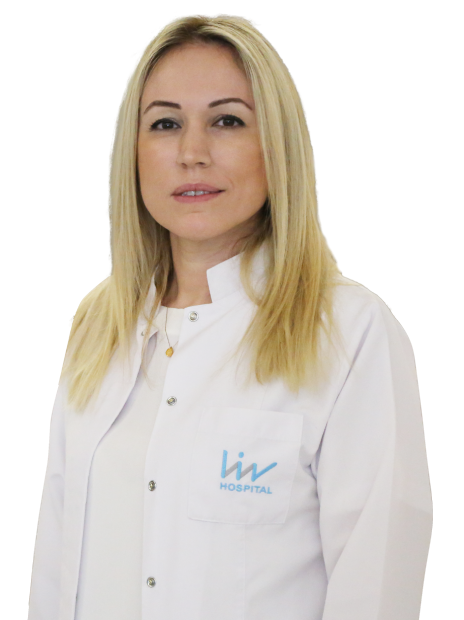LPR (Silent Reflux): Symptoms, Causes, and Treatments
Laryngopharyngeal Reflux (LPR), often called silent reflux, is a condition that subtly yet significantly affects the upper airway. Raising awareness about LPR is essential, as its symptoms are frequently mistaken for other throat issues, which can delay diagnosis and treatment. In this guide, we will clarify the definition and relationship between LPR and silent reflux, highlight the importance of early recognition, and cover essential topics such as symptoms, treatment options, dietary recommendations, natural remedies, and long-term management.
Let's explore LPR together and empower ourselves with knowledge for better throat health and overall well-being.
So, let's uncover the mysteries of LPR and empower ourselves with knowledge for a healthier throat and well-being.

What is Laryngopharyngeal Reflux?
When acid from the gut and digestive enzymes run back toward the larynx and pharynx, producing discomfort and swelling, this condition is known as laryngopharyngeal reflux or LPR. Unlike gastroesophageal reflux disease (GERD), LPR primarily affects the upper airway and doesn't typically cause heartburn. Chronic hoarseness, coughing, inflammation of the throat, and an obstruction in the throat are some of its symptoms. LPR occurs when the lower esophageal sphincter (LES) fails to close properly, allowing stomach contents to reflux upwards. Contributing factors include diet, lifestyle habits, and certain medications. If left untreated, LPR's impact on the upper airway can lead to persistent discomfort and potentially damage the vocal cords, underscoring the importance of early recognition and management.
Trust your voice and throat care to Liv Hospital, a leading medical center in Turkey. Our experienced specialists are dedicated to helping you overcome Laryngopharyngeal Reflux.

Recognizing Laryngopharyngeal Reflux Symptoms
Recognizing the silent reflux symptoms is crucial for early diagnosis and effective management. Common symptoms include chronic hoarseness or a rough voice, which may persist despite rest and hydration. Persistent coughing and frequent throat clearing are also prevalent, along with throat irritation and the sensation of a lump in the throat (Globus sensation). LPR can also lead to excessive throat mucus and post nasal drip, contributing to ongoing discomfort. It's essential to be aware of potential atypical symptoms, such as unexplained ear pain, recurrent sore throat, and mild asthma-like symptoms.
Seeking medical evaluation promptly is vital, as untreated LPR can cause further complications, including vocal cord damage. Individuals can experience relief and safeguard their upper airway health with timely recognition and appropriate care. Restore your voice's clarity and strength. You can discover Liv Hospital's state-of-the-art treatments for Laryngopharyngeal Reflux in Istanbul and take the first step toward vocal wellness.
Laryngopharyngeal Reflux Treatment
Effective treatment for Laryngopharyngeal Reflux (LPR) involves a multi-faceted approach to alleviate symptoms and promote healing. Lifestyle modifications play a pivotal role, including elevating the head of the bed to prevent nighttime reflux and adopting dietary changes to avoid trigger foods like acidic and fatty items. Weight management and quitting smoking are essential for reducing reflux risk. In the realm of medical treatments, Proton Pump Inhibitors (PPIs) are prescribed to decrease acid production, while H2 blockers mitigate stomach acid effects. In some cases, prokinetics may improve digestive system movement and manage reflux.

If non-surgical approaches are not effective, surgical intervention may be considered. One common procedure is fundoplication, in which the upper part of the stomach is wrapped around the lower esophagus to strengthen the lower esophageal sphincter. Combining this surgical option with other tailored therapies can improve outcomes and overall well-being for individuals managing LPR.
Ready to speak freely again? Discover Liv Hospital's specialized experience in treating Laryngopharyngeal Reflux and regain control of your voice and throat health. Visit us in Turkey to learn more.
Ready to speak freely again? You can explore Liv Hospital's expertise in managing Laryngopharyngeal Reflux and regain control of your voice and throat health. You may visit us in Turkey to find out more.
Laryngopharyngeal Reflux Diet: Foods to Avoid and Include
A proper Laryngopharyngeal Reflux (LPR) diet helps reduce symptoms and prevent flare-ups. Avoid acidic, spicy, and fatty foods, and focus on nutrient-rich, reflux-friendly options like lean meats, fish, skinless poultry, whole grains (oatmeal, quinoa), non-citrus fruits (bananas, melons), and vegetables. Drink water, herbal teas, or non-citrus juices in moderation. A mindful diet supports LPR management and overall health
Don't let silent reflux disrupt your daily life. Our caring team at Liv Hospital is here to provide comprehensive care and effective solutions in Istanbul. You can find out how we can help you feel better now.
How To Treat Laryngopharyngeal Reflux Treatment Naturally?
Natural remedies and home treatments can effectively complement medical therapies for managing Laryngopharyngeal Reflux (LPR). Natural substances like ginger, slippery elm, and aloe vera offer anti-inflammatory benefits that can help soothe irritated throat tissues. Adding these ingredients to teas or smoothies may provide additional symptom relief. Managing stress levels is also important, as stress can trigger reflux and impact overall well-being. By integrating these natural remedies and adopting healthy lifestyle changes, individuals can take a more holistic approach to managing LPR.

Prevention and Long-Term Management
Prevention and long-term management are key to effectively controlling Laryngopharyngeal Reflux (LPR) and supporting throat health. Embracing a reflux-friendly lifestyle”which means choosing a nutritious diet, avoiding trigger foods, and managing stress”is vital for reducing flare-ups. Elevating the head of your bed can further decrease nighttime reflux. Regular medical follow-ups are important for tracking your progress and fine-tuning treatment as needed. Prioritizing self-care and staying vigilant with symptoms empowers you to manage your condition proactively and respond quickly to any changes. By taking these proactive steps, you can achieve sustained relief and support your long-term well-being.
* Liv Hospital Editorial Board has contributed to the publication of this content .
* Contents of this page is for informational purposes only. Please consult your doctor for diagnosis and treatment. The content of this page does not include information on medicinal health care at Liv Hospital .
For more information about our academic and training initiatives, visit Liv Hospital Academy
Frequently Asked Questions
What is the difference between LPR and GERD?
LPR (Laryngopharyngeal Reflux) primarily affects the throat and voice box, often without causing heartburn. GERD (Gastroesophageal Reflux Disease) mainly impacts the esophagus and typically includes symptoms like heartburn and acid regurgitation.
What are the common symptoms of LPR?
Common LPR symptoms include chronic throat clearing, hoarseness, coughing, the sensation of a lump in the throat, post-nasal drip, and excessive throat mucus.
Can silent reflux cause voice changes?
Yes. LPR can inflame and irritate the vocal cords, leading to hoarseness, a weak or rough voice, and difficulty speaking for long periods.
What foods should I avoid if I have LPR?
Avoid acidic, spicy, and fatty foods, as well as caffeine, alcohol, citrus fruits, chocolate, and carbonated beverages. These can worsen reflux symptoms.
How is LPR treated?
Treatment includes lifestyle changes, dietary adjustments, and medications such as proton pump inhibitors (PPIs) or H2 blockers to reduce stomach acid. Severe cases may require surgery.
Are there natural ways to manage LPR?
Yes. Natural remedies like ginger tea, aloe vera juice, and slippery elm can soothe throat irritation. Stress management and maintaining a healthy diet also help reduce symptoms.
Why choose Liv Hospital for LPR treatment?
Liv Hospital provides advanced diagnostics, expert ENT and gastroenterology specialists, and personalized reflux management plans, ensuring comprehensive care and long-term relief in Turkey.


